
UTS - Growing talent with care
We are dedicated to help students feel safe, cared for and respected as they embark upon their educational journey with UTS.

UTS - Growing talent with care
We are dedicated to help students feel safe, cared for and respected as they embark upon their educational journey with UTS.

UTS - Growing talent with care
We are dedicated to help students feel safe, cared for and respected as they embark upon their educational journey with UTS.

UTS - Growing talent with care
We are dedicated to help students feel safe, cared for and respected as they embark upon their educational journey with UTS.

- Why UTS
- Admission process
- Admission registration
- Enrollment registration
- Fees schedule and policy
- Financial package
- FAQ
UTS students are always ready for the future full of changes
UTS puts effort into creating a learning environment that meets international standards, facilitating students to become global citizens.

UTS students are always ready for the future full of changes
UTS puts effort into creating a learning environment that meets international standards, facilitating students to become global citizens.

UTS students are always ready for the future full of changes
UTS puts effort into creating a learning environment that meets international standards, facilitating students to become global citizens.

UTS students are always ready for the future full of changes
UTS puts effort into creating a learning environment that meets international standards, facilitating students to become global citizens.

UTS students are always ready for the future full of changes
UTS puts effort into creating a learning environment that meets international standards, facilitating students to become global citizens.

UTS students are always ready for the future full of changes
UTS puts effort into creating a learning environment that meets international standards, facilitating students to become global citizens.

UTS students are always ready for the future full of changes
UTS puts effort into creating a learning environment that meets international standards, facilitating students to become global citizens.

- High quality Learning and Teaching
-
Study pathway
-
Learning programs
- Social Emotional learning
- Summer program
-
Competency assessment
UTS students learn life-long lessons
Our programs are designed by the Academic council and the partnership with trustworthy educational institutions worldwide.

UTS students learn life-long lessons
Our programs are designed by the Academic council and the partnership with trustworthy educational institutions worldwide.

UTS students learn life-long lessons
Our programs are designed by the Academic council and the partnership with trustworthy educational institutions worldwide.

At UTS, every child is a talent
We believe talent is present in every child, which a dedicated educator can always realise.
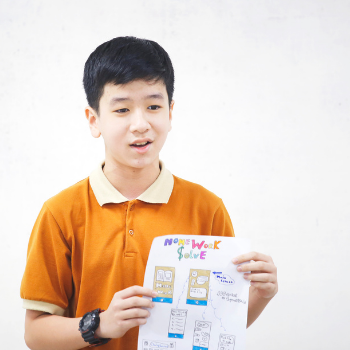
At UTS, every child is a talent
We believe talent is present in every child, which a dedicated educator can always realise.

At UTS, every child is a talent
We believe talent is present in every child, which a dedicated educator can always realise.

At UTS, every child is a talent
We believe talent is present in every child, which a dedicated educator can always realise.

At UTS, every child is a talent
We believe talent is present in every child, which a dedicated educator can always realise.

A child needs at least one adult not leaving them behind
UTS is an engaging community where educators, parents are caring trustworthy friends and guiders of every student.

A child needs at least one adult not leaving them behind
UTS is an engaging community where educators, parents are caring trustworthy friends and guiders of every student.

A child needs at least one adult not leaving them behind
UTS is an engaging community where educators, parents are caring trustworthy friends and guiders of every student.

We care all aspects affecting a child’s development
We bring an educational environment where all aspects of a child is genuinely cared.

We care all aspects affecting a child’s development
We bring an educational environment where all aspects of a child is genuinely cared.

We care all aspects affecting a child’s development
We bring an educational environment where all aspects of a child is genuinely cared.

Learning days at UTS are filled with excitement.
UTS students grow through various teaching and learning activities. This nurtures natural, sustainable learning motivation for students.

Learning days at UTS are filled with excitement.
UTS students grow through various teaching and learning activities. This nurtures natural, sustainable learning motivation for students.

DO PARENTS KNOW? | HELP CHILDREN PLAN FOR THE FUTURE: HELP THEM TO BE IMPROVED INSTEAD OF BEING PERFECT.
TIN TỨC
03/12/2021

Parents always seem to want their children to get high scores, develop well to become the best they can be at school. But in fact, improving themselves every day is the most necessary thing to help your child have enough experiences to step firmly in the future. Children not only need to be educated with academic knowledge but also need to have skills in self-development and unleashing their potential. From an early age, parents can help their children improve themselves from the following simple things:
1. Let children face up and solve their own problems.
Not only adults, but children also face many problems every day, from difficulties in the learning process, pressure on grades, relationships with teachers and friends, physical health and mental health, etc. But not all children have enough skill or confidence to solve their problems.
If not guided by parents, children will become timid, thereby choosing to run away instead of facing and solving each problem. This is also the reason why many children have a lot of trouble in school as well as in their life. Children who lack problem-solving skills tend to lack careful thinking in everything and are not oriented to what they should do.
Therefore, teaching children to face problems and solve them will help them be more active in life, improve logical and critical thinking. When a specific problem occurs, parents should not help children do it right away. Instead, let your child analyze and define the problem. Parents can still be available to guide children when they need support, but it is still a priority to encourage children to solve their own problems first.
If your child is having trouble with giving solutions, parents can sit down with children to discuss what should be done to be effective, so that they can use their logical thinking, because young children often come up with new ideas, lots of creative solutions. Sometimes just a small suggestion can develop into a lot of great ideas on their own. And finally, don’t forget to praise your child every time they take the initiative to solve a problem.
2. Be ready for your child to stumble and learn to face challenges.
Parents always give the best thing for their children, but at some point, if you are not careful, that protection and love are very easy to counteract. Instead of making decisions for children, parents should let children choose their own path, live fully with dreams, ambitions, and face challenges. This is the best way to sharpen courage in your child. Parents cannot be with your children forever, so teach them how to be independent so that they can live happily.
Children need parents to protect and support them, but when they are incoming of age stage, parents should teach them to make their own decisions and take responsibility for life. This is also one of the core values that UTS always aims for: Courage. Let your children strongly pursue their dreams, orient themselves if they are wrong, support them when they fall, always follow every step, and accompany them. Letting children apply their knowledge and experiences to life will also make them more courageous.
Growing up is a process in which parents always have their back, not the ones who “roll out the velvet carpet” for the child to walk with legs that have no chance to be sturdy.
3. Let children develop their own potential
Each child will have a unique ability in each aspect. According to Professor Howard Gardner’s theory of multiple intelligences, there are eight types of intelligence that are identified and recognized in humans. Therefore, each child will have a unique ability to develop in one or a few certain aspects. Many parents have the assumption that their children need to study well at school, but this is not the case.
Each of you will have different strengths and we should not impose our subjective expectations on children. Parents need to pay attention to the interests of their children to develop what they are passionate about. When children learn and grow with their own passion, they will find joy in learning new knowledge. Understanding that, at UTS, each student is cared for and facilitated to develop their potential with appropriate study programs, helping them apply skills in real life, family, and society.
4. Encourage children to be integrity in all situations.
In addition to developing social and thinking skills, many parents are often subjective when it comes to helping children form character from an early age. Educating children with good virtues from an early age, especially the virtue of honesty, helps them shape their personality and decide for their next life.
To help children develop this quality, parents only need to apply simple methods: do not push the child into situations to try to see if he is lying or not, those situations will put them in a difficult position and will lie so as not to be punished. Instead, encourage your child to learn from the experience, be more careful the next time. Being too harsh will make your child afraid and not dare to take responsibility.
In addition, parents also need to be honest and dare to admit the personal weaknesses. Parents themselves are the biggest model for their children to look at. Sometimes, admitting your faults to your children makes you fear that your child will no longer respect you, but acting honestly and willingly to admit mistakes with your child will also help build trust and a good environment in the family. UTS also always puts integrity as one of the top qualities for nurturing students, which helps them to keep their trust and always say no to false behaviors.
Read this next

Medal speak volumes at the National Phu...
News
11/12/2023
In November, UTS-ers showcased their strengths in the field of sports at the District level competition for the National Phu Dong Sports Festival.
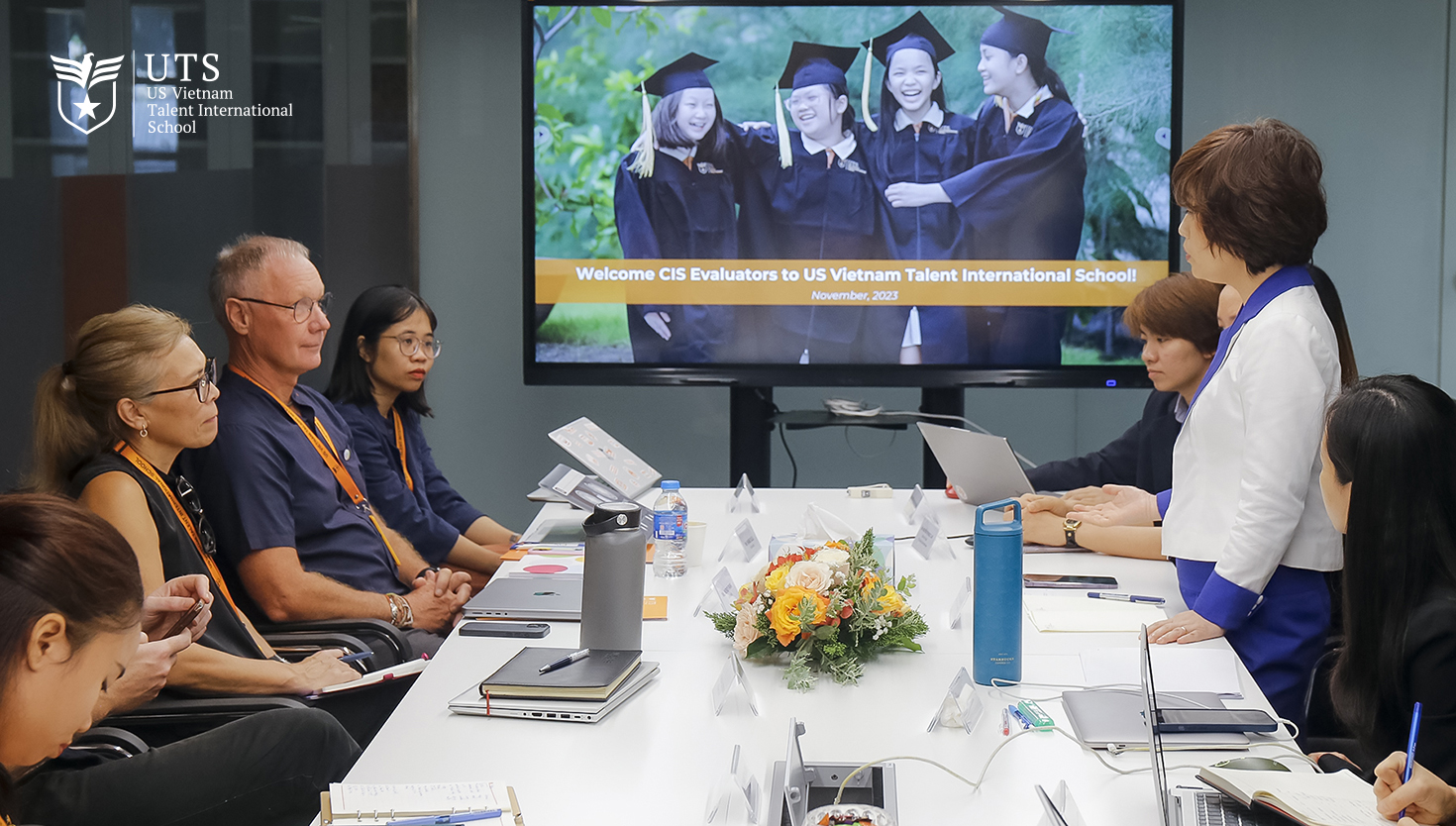
Journey To CIS Accreditation | We Are...
News
01/12/2023
From 27th to 30th, November, we are honored to welcome the CIS evaluators to visit UTS Van Lang Complex....

Appreciation week – Make others see the...
News
We understand that not only us who are trying the best on this journey, but our teachers are also doing the best with us every day.

Human of UTS: Talented “eagle” Do Thanh...
News
22/11/2023
Bringing home two medals at the World Scholar's Cup, let's see about the development journey of "eagle" Do Thanh Dat at UTS!

Reading Culture – The strong foundation of...
News
13/11/2023
What is reading culture and why do we need to focus on developing reading culture? How has UTS trained reading culture for students at school?

UTS Appreciation Week: Make others see the...
Events
16/11/2023
Each UTS educator is a caring "nurturer" with the mission of growing the students to be excellent in character and in learning.

Anti-Bullying Week 2023
Events
06/11/2023
2023 theme "Make a noise about bullying" is an opportunity for students to use their voices and express their thoughts to prevent bullying...

Open Day – The Golden Time To...
Events
18/11/2023
Kindergarten, Primary or High school, 4 years old, 6 years old or 16 years old, what will be the golden time to shape your child's future?

Training on Fire Prevention and Firefighting at...
News
26/10/2023
Equipping students with skills to protect themselves and to handle emergency situation is one of the top priorities at UTS.

UTSPook-a-thon: Let’s get spooky!
Events
30/10/2023
UTS Halloween Festival called "UTSpook-a-thon" carries the meaning of a festive season with many interesting activities for students.

UTS Continues To Be Certified As A...
News
14/10/2023
UTS is proud to be marked the three consecutive years milestone in achieving Microsoft Showcase School....

What a meaningful Saturday of UTS at...
News
07/10/2023
The UTS Community had a fantastic experience at UTS Van Lang Complex with a new friend named Rhino Ranger from Wild Rhino in the Rhino Day.

The House Kick-off Ceremony – academic year...
News
15/09/2023
At UTS, each house is a unique color and has its own personality, representing six core values that we always uphold in all activities.

UTS x Wild Rhino: Protecting Rhinos and...
Events
07/10/2023
UTS collaborates with The Wild Rhino to organize Rhino Day: “Protecting Rhinos and other endangered wild animals”

UTS Full Moon-mory: The moon is on...
News
29/09/2023
Our "UTS Full Moon-mory" symbolizes a Full Moon season filled with the most grateful memory by the beloved family and UTS community.

The Academic 2023 – 2024 Opening Ceremony
News
28/09/2023
The academic year 2023-2024, fulfilled with joy, has begun. Let's think bigger, learn happier, and grow together every day!

Mid-Autumn Festival – UTS Full Moon-Mory
Events
29/09/2023
UTS Ful Moon-mory symbolizes a Full Moon season filled with the most grateful memory by the beloved family and UTS community...

Opening Ceremony Of The Academic Year 2023...
Events
05/09/2023
Entering the 6th year of the “Growing talent with care”, the Opening Ceremony of academic year 2023 - 2024 will mark a proud milestone...

Professional Development Weeks 2023 (PD Weeks 2023)...
News
25/08/2023

The Back-To-School Day Of Academic Year 2023...
Events
21/08/2023
To welcome UTS-ers back to school, the “nurturers” have prepared remarkable surprises and meaningful imprints...

Do you know? How Does A Sentimental...
News
29/06/2023
%%sitename%% According to parents’ perspective, what is the root cause of making such a generation gap? Let's explore!

Open Day – Preparing For Back-to-school Success
Events
22/07/2023
Parents are cordially invited to attend the sharing session about important things to prepare in the upcoming new school year!

Parenting Workshop: The Bittersweet Struggles On The...
Events
13/07/2023

Do you know? How Does A Sentimental...
News
29/06/2023
%%sitename%% - According to parents’ perspective, what is the root cause of making such a generation gap? Let's explore!

UTS’s Got Talent 2023 | Talented Performances...
News
01/06/2023

School Year 2022 – 2023 Closing Ceremony|...
News
30/05/2023

Rage Is Just A Simple Emotion!
News
20/05/2023

TESOLution 2023: When Teaching English Doesn’t Just...
News
24/05/2023

UTS’S GOT TALENT 2023
Events
24/05/2023
UTS'S GOT TALENT is not only a competition to explore the hidden talent, but also an opportunity, empowers you to express your talents...

Lớp học hạnh phúc – Trải nghiệm...
Events
15/07/2023

Parenting workshop: How to be friend with...
Events
20/05/2023

Passport To The Future
Events
13/05/2023

The First English Play At UTS –...
News
15/04/2023

A Day Becoming An OIC Student, What...
News
27/03/2023
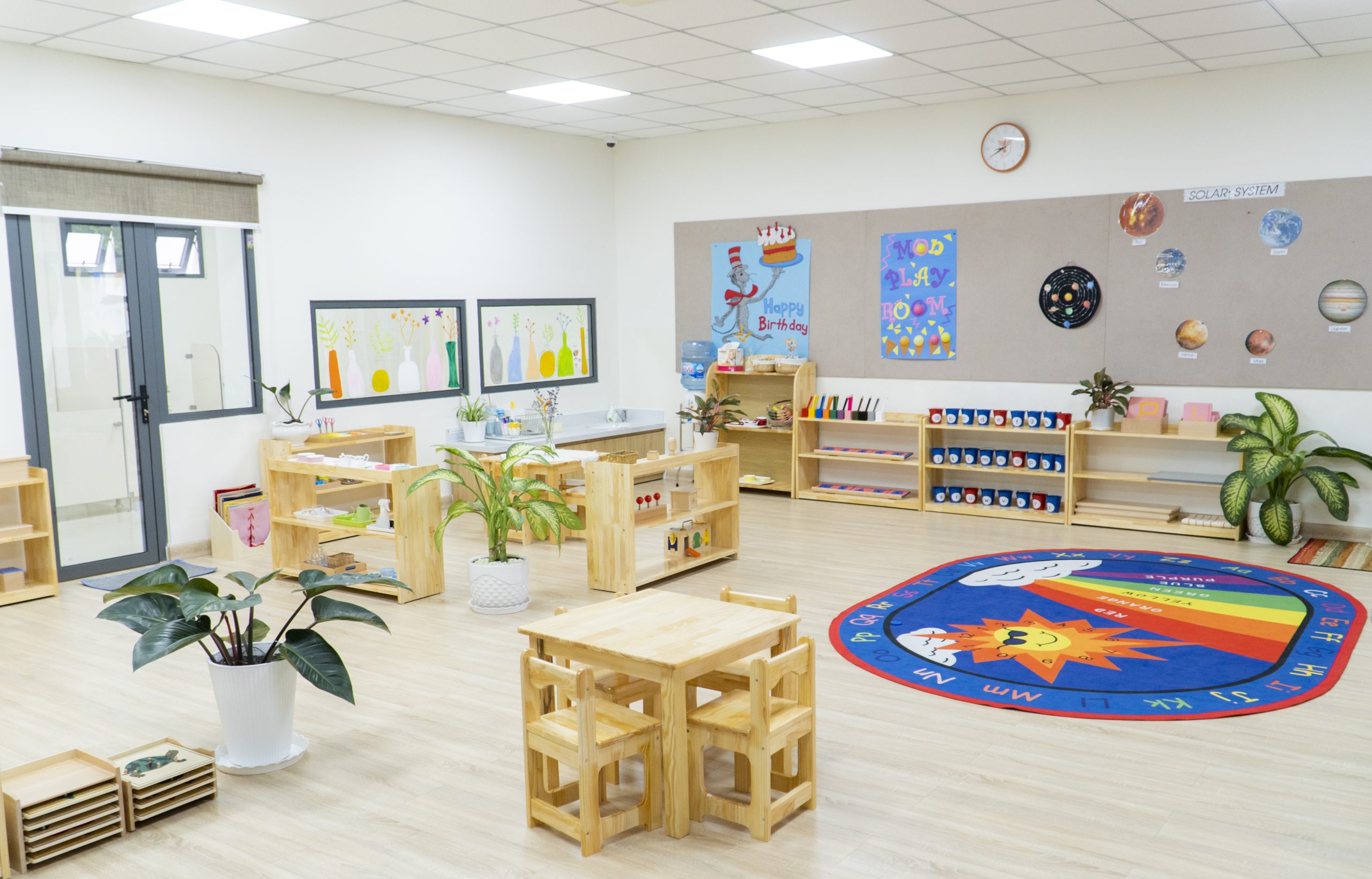
Magic In The Montessori Classrooom At UTS...
News
08/04/2023

UTS Parents Talk | The Key To...
News
07/04/2023
UTS Parents Talk series, which is held by UTS, will be a bridge between parents and children to strengthen their relationships...

UTS GENIUS OLYMPIAD 2023: Gathering The Future...
News
04/04/2023

The “Transceding Time” Journey At UTS Summer...
News
15/06/2023

School Play’s Premier “Snow White And The...
Events
07/04/2023

Congratulations UTS Eagles On Entering The Final...
News
15/03/2023
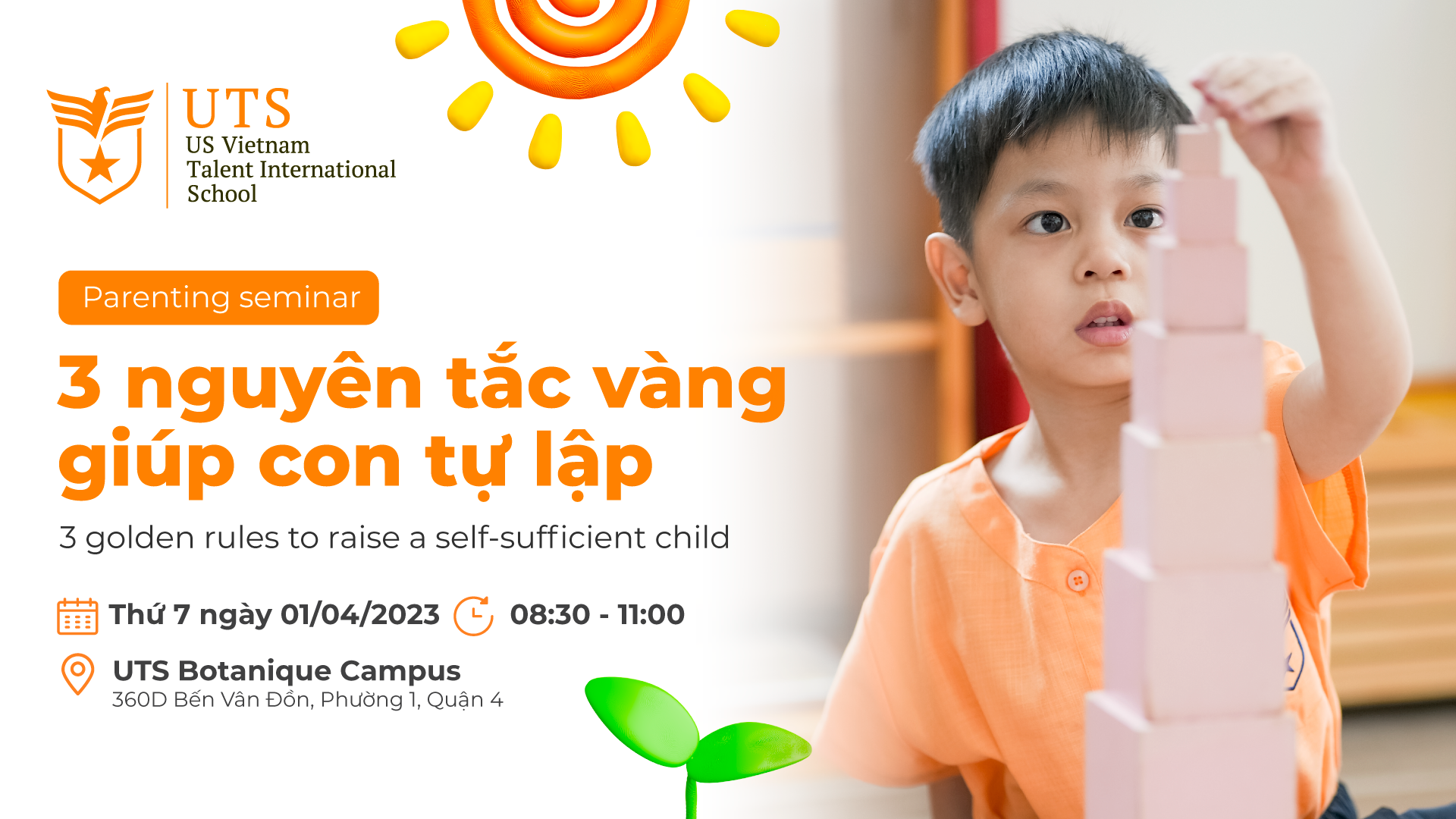
OPEN HOUSE: 3 GOLDEN RULES FOR RAISING...
Events
01/04/2023

Do you know? Be positive with your...
News
11/02/2023

Fulfill The “Season Of Giving” With A...
News
24/12/2022

US Vietnam Talent International School becomes a...
News
27/09/2022

School Year 2022-2023 Opening Ceremony | The...
News
08/09/2022

Welcome to the new school year! Welcome...
News
22/08/2022

Nurturing a love of Learning with the...
News
15/08/2022
The National Program is a standard program under the new curriculum framework of the Ministry of Education and Training for all levels of education

The Journey To Children’s Inner Garden Through...
News
07/01/2023
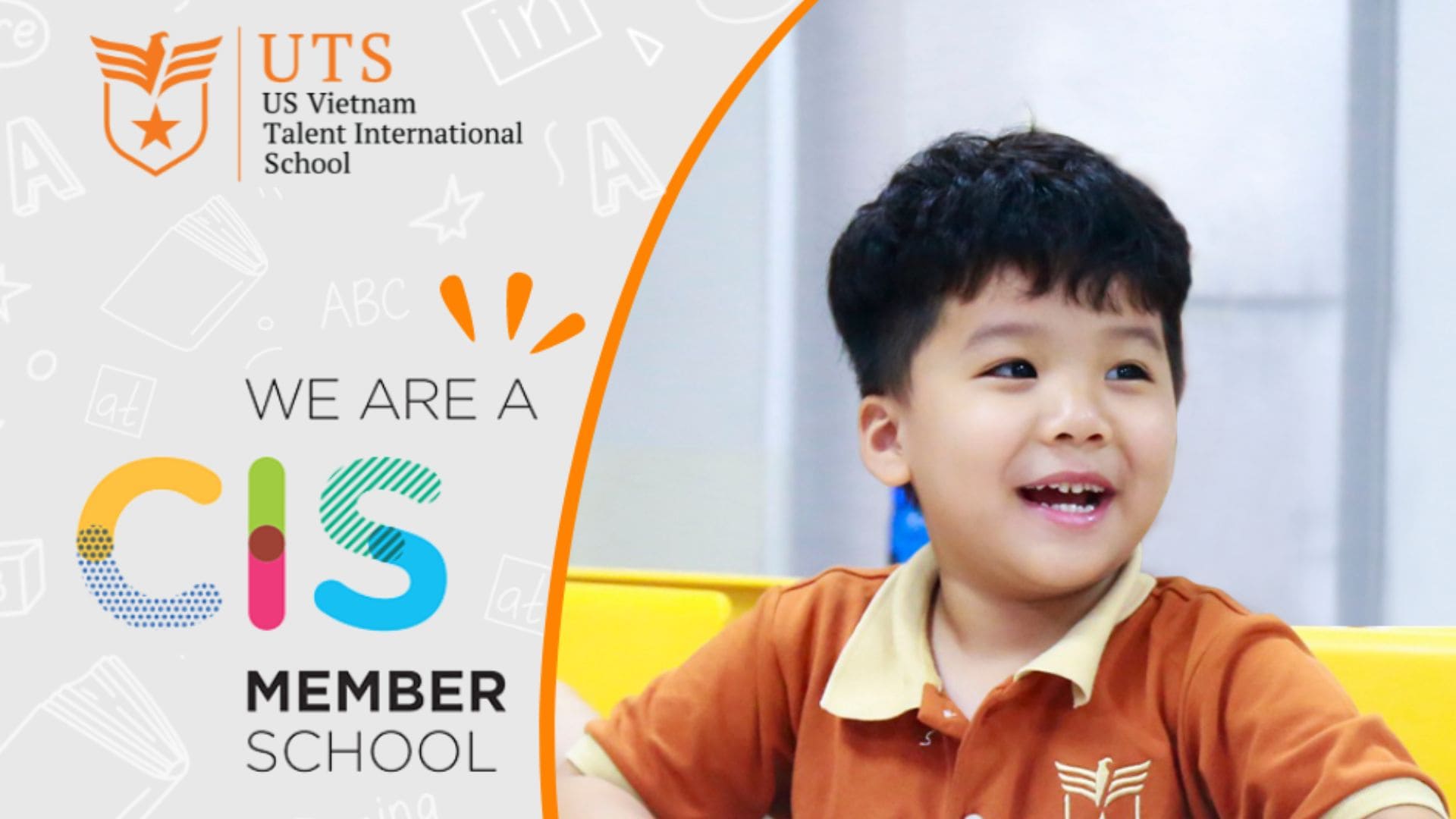
UTS Officially Becomes A Member Of The...
News
10/08/2022

Do Parents Know? – Create Home Space...
News
16/07/2022

UTS-ers Are Full Of Energy With UTS...
News
08/03/2022
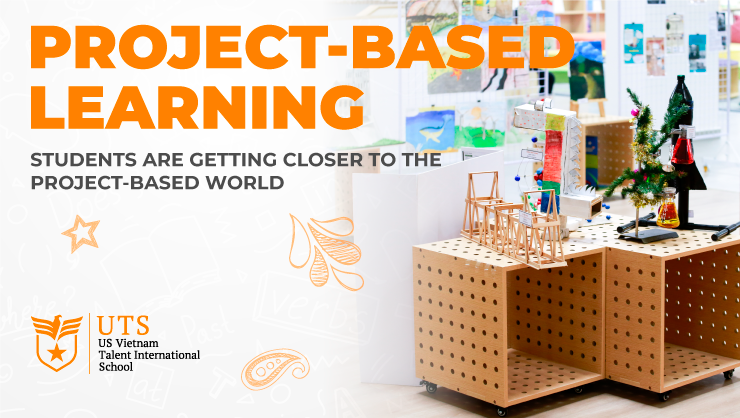
Project-Based Learning (PBL): Students Are Getting Closer...
News
04/07/2022
Project-based learning is an instructional give students the opportunity to develop knowledge and skills through engaging projects

Congratulations to Grade 5, 9 and 12...
News
02/06/2022

Closing Ceremony Of The School Year 2021...
News
02/06/2022

Closing Ceremony Secondary Academic Year 2021-2022: The...
News
27/05/2022

UTS-ers Are Full Of Energy With UTS...
News
09/05/2022

Conquering Natural Science Knowledge With The Nobel...
News
05/04/2022

Experiential Learning: When learning is not only...
News
23/06/2022

Dành cho các bậc phụ huynh: Bé...
News
03/04/2021

Reading – Awaking knowledge and nurturing children’s...
News
17/05/2022
Wonders Quest English Camp: Super Talent Squad
Events
22/05/2022
Wonders Quest English Camp: Super Talent Squad
Events
22/05/2022

Open Day – Game bài đổi thưởng Mê đổi thưởng Campus
Events
06/08/2022

Experience Day: Exploring Talent Garden – UTS...
Events
18/06/2022

Bravery and excellence of UTS’ little actors...
News
09/01/2021

Cross-curricular project “Green trees around us”: For...
News
15/01/2021
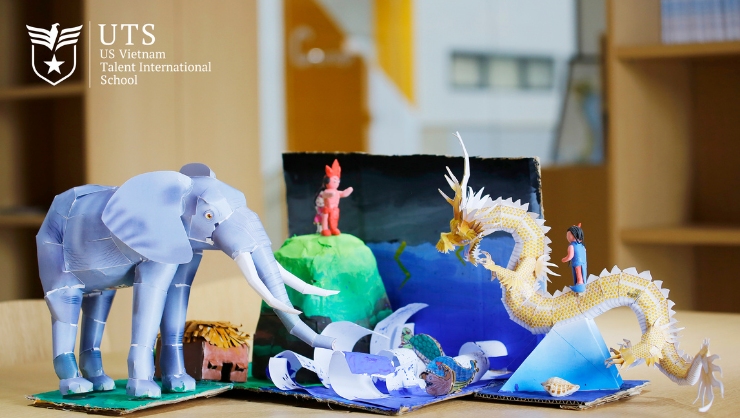
When Literature is not simply letters!
News
14/01/2021
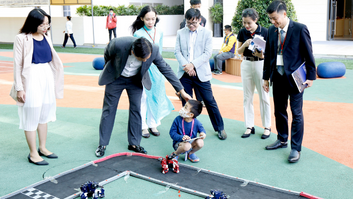
Math Open Day 2021 at UTS: Fantastic...
News
17/01/2021

A wonderful and meaningful semester has passed...
News
20/01/2021

Explosion of team spirit with tug of...
News
21/01/2021
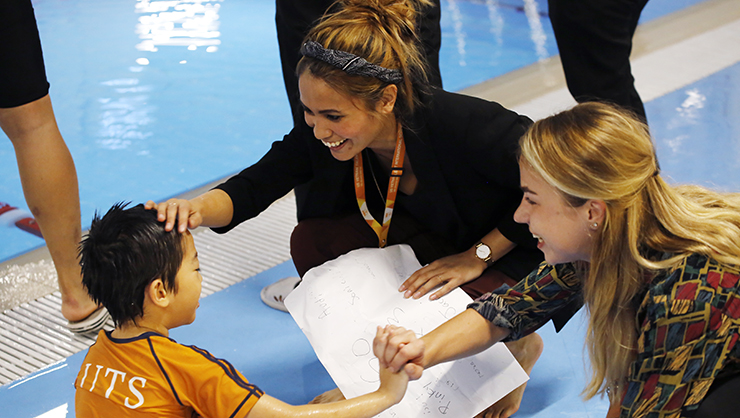
“Little swimmers” of UTS with admirable effort
News
23/01/2021
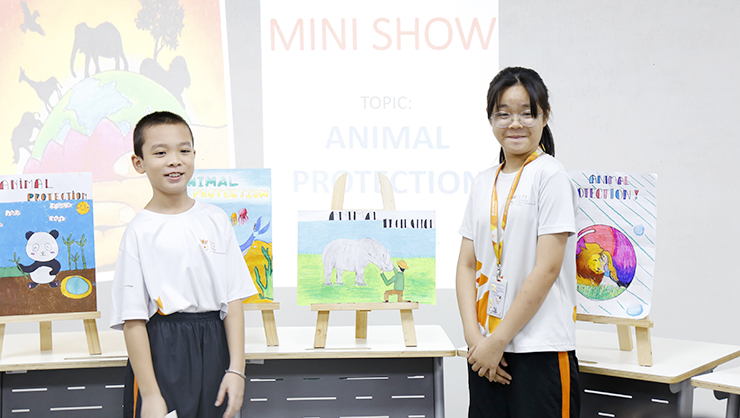
Learning about animal protection with glowing colors
News
25/01/2021
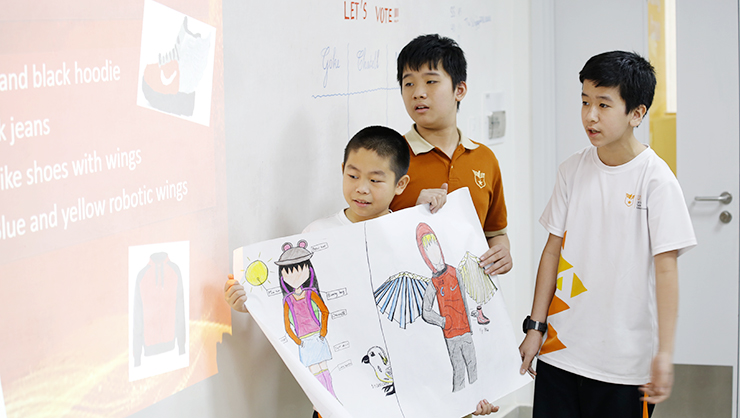
UTS-ers and their “fashion companies”
News
26/01/2021

National pride with the shadow puppetry of...
News
27/01/2021
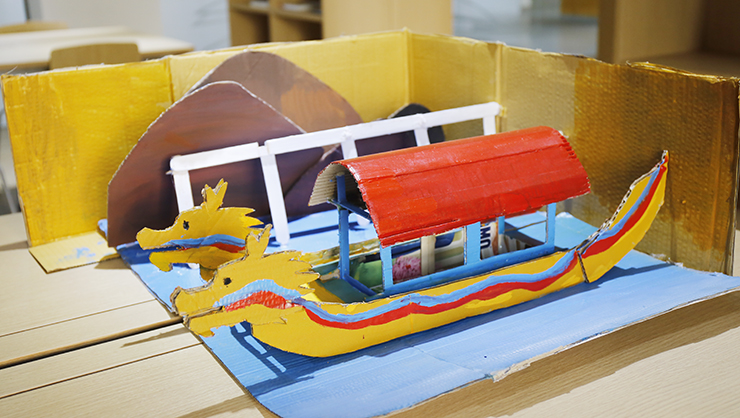
Making famous literary works come alive by...
News
01/02/2021

UTS-ers showing their whorls with unique handmade...
News
03/02/2021
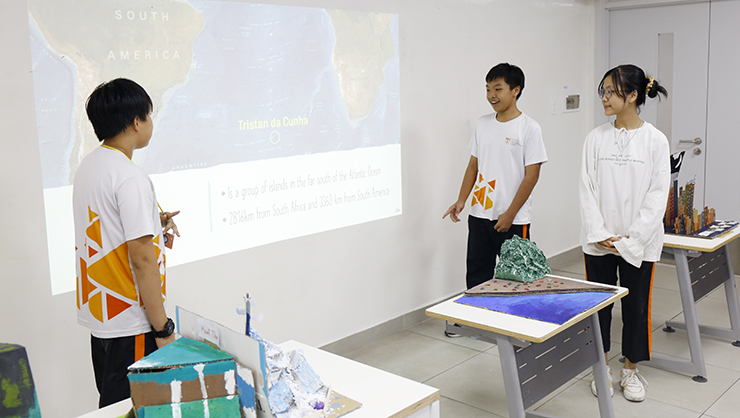
UTS-ers and the “adventure” to most extreme...
News
23/02/2021

Learning enthusiastically, fighting the COVID off!
News
25/02/2021

UTS community safely return to school together
News
01/03/2021
Why should we read books?
News
04/03/2021

Dear our beloved women!
News
05/03/2021

Be handy with lovely cards of UTS-ers
News
06/03/2021
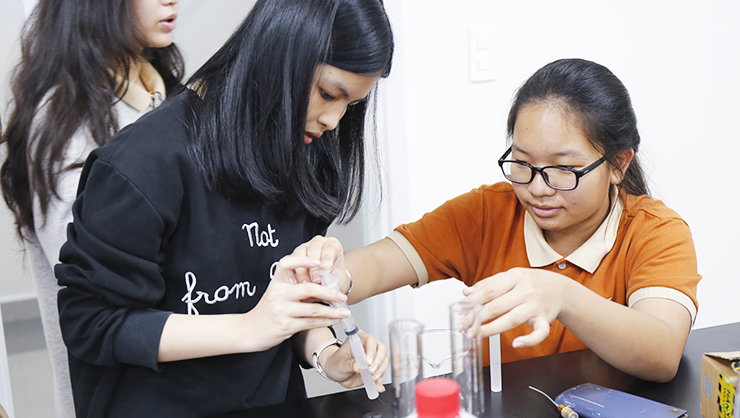
Chemistry Club: Learn how to make perfume...
News
10/03/2021

How to learn descriptive writing effectively?
News
11/03/2021

World Water Day 2021: Let’s appreciate our...
News
22/03/2021

Drama “Make friends with the sky” of...
News
23/03/2021

[Human of UTS] – Dang Bao Duy:...
News
25/03/2021
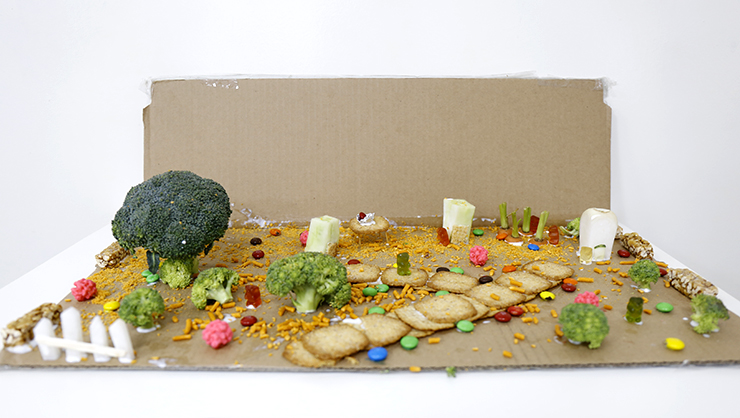
Learning English with foodscapes!
News
31/03/2021

Raising UTS-ers’ awareness about cyber-bullying
News
29/04/2021

M’Drak Kindergarten: The beginning of dreams
News
27/03/2021
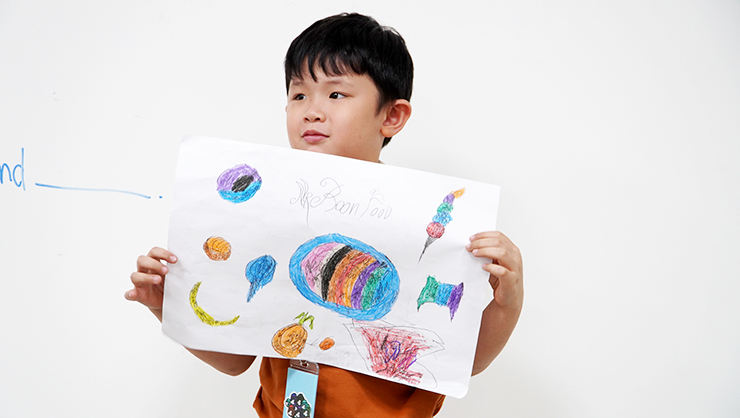
Let’s revise English vocabulary of the theme...
News
09/04/2021
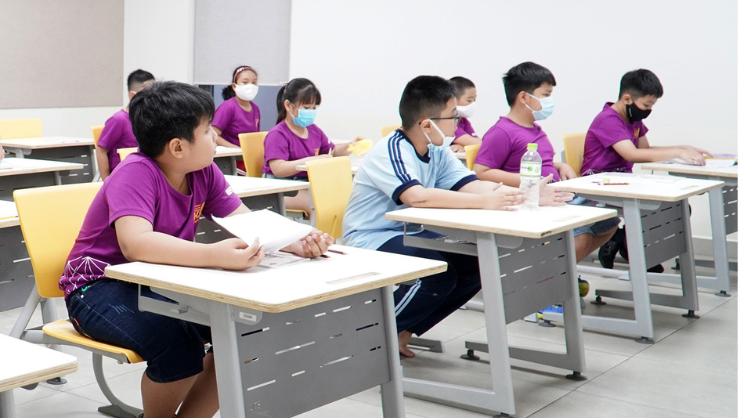
The International Kangaroo Math Contest 2021 at...
News
12/04/2021

UTS-ers experience dream jobs in the happy...
News
15/04/2021

UTS-ers meet the champion of the U19...
News
16/04/2021

Growing up in the experiential learning trip...
News
17/04/2021

Teo is coming back!
News
19/04/2021

Wear green to school – Let’s celebrate...
News
21/04/2021

UTS is full of green on the...
News
22/04/2021
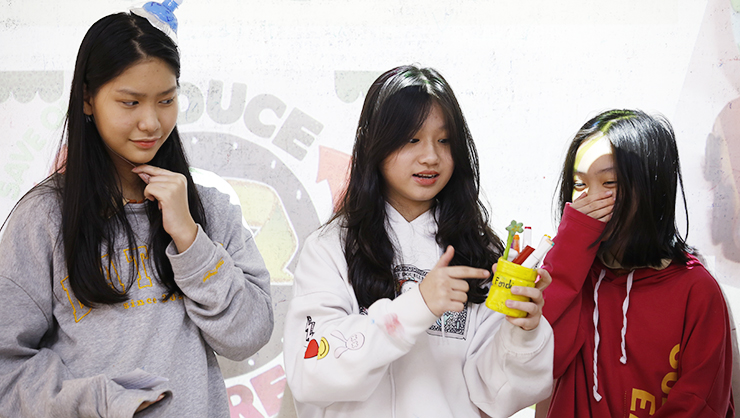
UTS-ers “recycling” project: Reduce waste to help...
News
23/04/2022

“Humans of UTS” Rewind: A love story...
News
24/04/2021
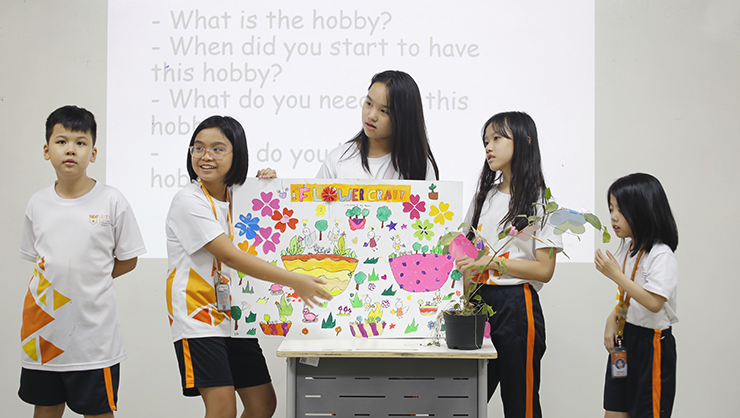
Turning hobbies into passions with UTS-ers
News
03/05/2021

The journey of smiles at UTS
News
27/04/2021
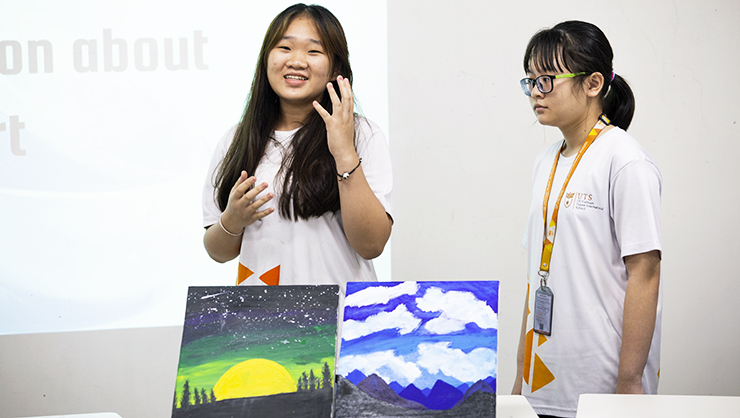
Which color in the UTS-ers’ world?
News
26/04/2021
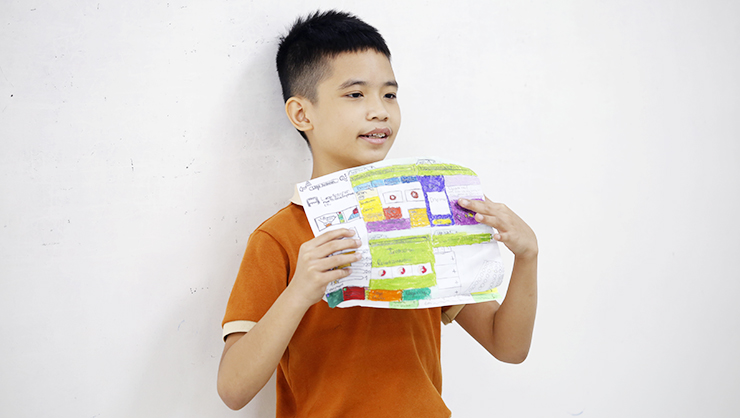
Unique applications of “little programmers” at UTS
News
04/05/2021
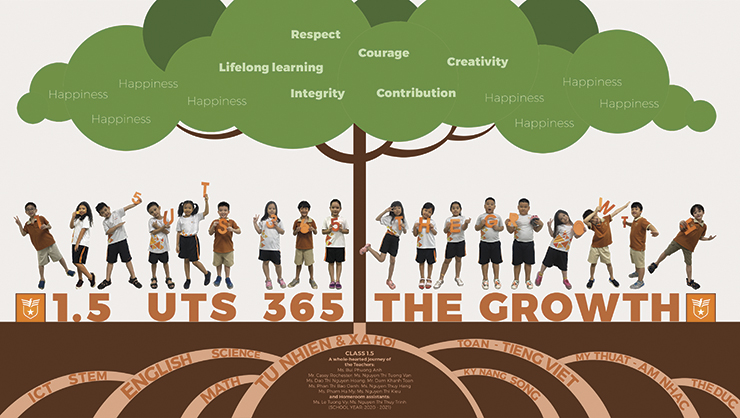
“UTS – 365 The Growth” voting round...
News
08/05/2021

UTS: Keep the spirit – Together we...
News
10/05/2021
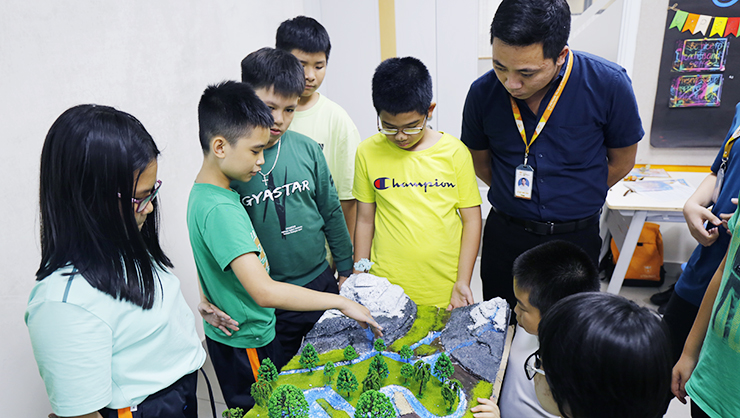
UTS-ers “created” amazing river & lake system
News
11/05/2021

Sharing emotions and memories with the “UTS...
News
12/05/2021

“Love Giving” stories-telling project
News
15/05/2021
%%sitename%% Love Giving stories-telling project

Result annoucement of the “UTS – 365...
News
21/05/2021

Congratulations UTS’ students on outstanding achievements in...
News
22/05/2021

“She has completed the 1st Grade at...
News
24/05/2021

[Humans of UTS] – UTS Homeroom Assistance...
News
25/05/2021

Benefits of inter-level bilingual school at UTS
News
18/04/2022

Saving sweet memories with UTS-ers
News
18/04/2022

Accompanying children in the environmental protection journey
News
18/04/2022

Oxford International Curriculum
News
18/04/2022

“I feel sastified when trusting UTS to...
News
18/04/2022

Congratulations Luong Dang Huy (Grade 11) on...
News
08/06/2021

Have parents talked to children about Gender...
Events
23/07/2021

Online talkshow: When education is defined by...
Events
13/08/2021

The Oxford International Curriculum: The joy of...
Events
06/03/2022

Talkshow: raising the child like a tree
Events
08/01/2022

DO PARENTS KNOW? DON’T TURN DISAGREEMENTS INTO...
News
25/02/2022

LIFELONG LEARNING HUB | HOW DO GRADE...
News
12/02/2022

DO PARENTS KNOW? | GUIDING YOUR CHILDREN...
News
10/02/2022

“HANDS-ON” METHODOLOGY- EXCITE CREATIVITY AND HELP CHILDREN...
News
17/01/2022

SPACED REPETITION METHOD – BEST “TIPS” FOR...
News
07/01/2022

DO PARENTS KNOW? | HELP CHILDREN PLAN...
News
03/12/2021

HISTORY 4.0 – THE SEEMINGLY BORING SUBJECT...
News
30/11/2021






